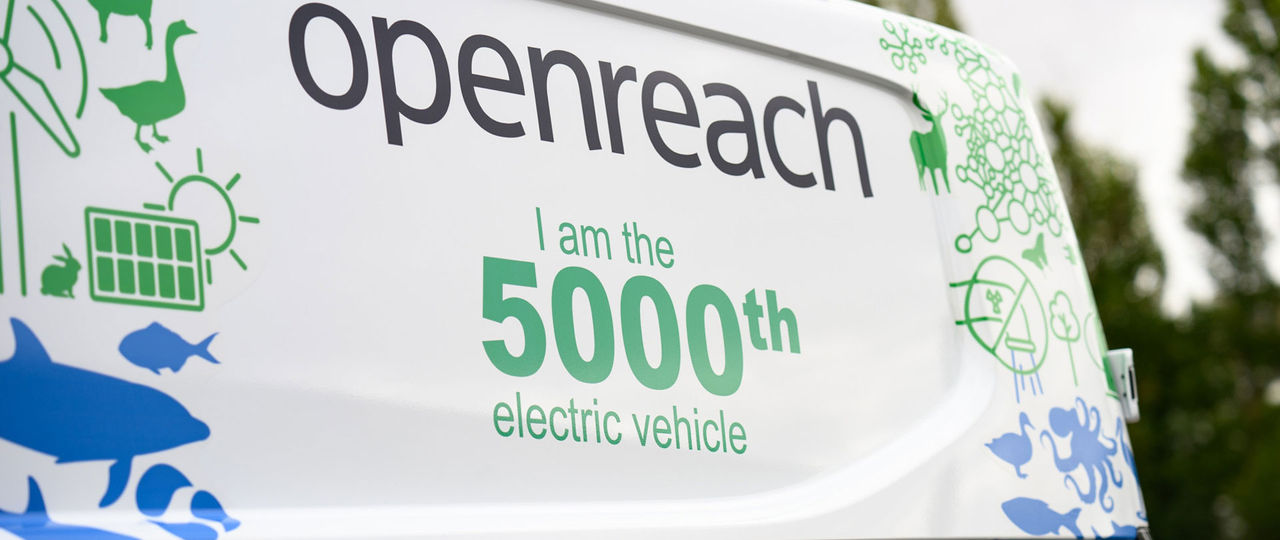
28th July 2025
Openreach celebrates 5,000 Electric Vans on the road
Openreach, which runs the UK’s second largest commercial van fleet, has driven its 5,000th electric vehicle (EV) onto the road, marking a major milestone in its plan to become a zero emissions business by March 2031.
The company has pledged to upgrade the vast majority of its 23,000 fleet to cut emissions, improve air quality, and support the UK’s net-zero goals. The switch is a key part of Openreach’s ‘Let’s Reach Zero’ strategy which focuses on reducing carbon emissions, cutting waste and protecting nature.
The 5,000 EVs are expected to save more than 10,000 tonnes of carbon emissions annually - the equivalent of removing over 7,000 petrol cars from UK roads each year.
Clive Selley, CEO of Openreach, said: “As we continue our work to connect homes and businesses to the UK’s most reliable broadband technology, we also want to help build a cleaner, greener future.
“We know the impact our operations have, so seeing our 5,000th electric van on the road is a proud moment for everyone at Openreach. By continuing to upgrade our fleet, and by installing EV chargers in our engineers' homes and our operational sites - we’re removing barriers to adoption, improving air quality, and supporting the communities we serve.”
To support the transition, Openreach is installing EV charging points at operational sites and engineers’ homes, enabling convenient overnight charging. So far, over 2,500 chargers have been installed, making the shift to electric smoother and more accessible for engineers across the UK. The company has also built a partnership with First Bus, so engineers can charge their vans at First Bus depots, taking pressure off public charging points and making life easier for those who live in flats.
To mark the milestone Openreach, with the support of Stewart Signs, has unveiled a special 5,000 van design featuring its ‘Let’s Reach Zero’ branding.
The company's EV transition also continues to gather pace, with plans to add a further 2,000 EVs to its fleet by the end of March 2026, and ongoing investment in charging infrastructure.



















